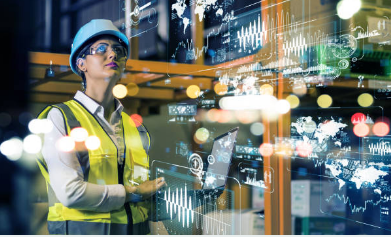Dubai, one of the world’s most visited cities, is reimagining the future of travel and hospitality through cutting-edge AI engineering solutions. As part of its vision to be a global leader in innovation and smart services, Dubai integrates artificial intelligence (AI) across its tourism infrastructure to enhance visitor experiences, improve operational efficiency, and deliver personalized services at scale.
From AI-powered concierge services to predictive analytics in hotel management, Dubai is transforming its tourism and hospitality industry into a futuristic, hyper-personalized ecosystem. This article explores the key engineering projects and AI applications that are revolutionizing Dubai’s tourism landscape.
1. Dubai’s Smart Tourism Vision
The Dubai Tourism Vision 2031 and initiatives like Dubai Smart City aim to create a seamless, tech-enabled environment for tourists. Engineering AI solutions into every touchpoint of a visitor’s journey—from trip planning to post-travel engagement—is central to achieving this goal.
Strategic Objectives:
- Deliver personalized and frictionless travel experiences
- Improve service quality and efficiency across hospitality
- Collect and analyze data for strategic tourism planning
- Position Dubai as a global model for smart tourism
Dubai’s rapid AI adoption is supported by public-private partnerships, innovation hubs, and a forward-thinking regulatory framework.
2. AI-Powered Personalization in Guest Services
Personalization is at the heart of modern tourism, and Dubai’s hotels and resorts are engineering AI systems that learn and adapt to each guest’s preferences.
Key Solutions:
- AI Concierge Systems: Virtual assistants like chatbots and smart kiosks respond to guest inquiries 24/7 in multiple languages.
- Personalized Recommendations: Machine learning algorithms suggest dining, entertainment, and travel experiences based on user profiles and behavior.
- Voice-Controlled Rooms: AI interfaces allow guests to control lighting, temperature, and entertainment using simple voice commands.
Impact: Improved guest satisfaction, greater loyalty, and more meaningful experiences.
3. Intelligent Hotel Management and Operations
AI plays a pivotal role in optimizing the operations of Dubai’s luxury hotels and resorts, making service delivery faster, more efficient, and cost-effective.
Applications:
- Predictive Maintenance: AI monitors hotel infrastructure (e.g., HVAC, elevators) and alerts staff before malfunctions occur.
- Smart Staffing Solutions: Algorithms forecast guest volumes and optimize staff schedules to ensure seamless service.
- Dynamic Pricing Engines: AI adjusts room rates in real-time based on demand, seasonality, and competitor pricing.
Impact: Reduced operational costs, increased profitability, and higher customer service standards.
4. AI in Travel Planning and Booking
Dubai’s travel and tourism platforms now employ AI to simplify and enhance the trip planning experience for millions of visitors.
Examples:
- AI Travel Bots: Assist tourists in finding flights, accommodations, and itineraries tailored to their preferences.
- Facial Recognition at Airports: Speeds up immigration and boarding processes for arriving tourists.
- Chatbots for Visa Inquiries: Offer fast and accurate information on travel requirements and regulations.
Impact: Smoother booking journeys and reduced friction in travel logistics.
5. AI-Enhanced Tourist Attractions and Experiences
From museums to theme parks, AI technology is enriching the cultural and entertainment offerings across Dubai.
Highlights:
- Augmented Reality (AR) and Virtual Reality (VR): Provide immersive guided tours at attractions like the Museum of the Future and Al Fahidi Historical District.
- Crowd Management Systems: AI predicts visitor flow and adjusts entry times to minimize congestion at popular destinations.
- Sentiment Analysis: AI monitors reviews and social media to assess visitor satisfaction and optimize future experiences.
Impact: More interactive, enjoyable, and data-informed visitor experiences.
6. AI in Food and Beverage Services
Restaurants, cafes, and resorts are leveraging AI to elevate dining experiences for both locals and tourists.
Features:
- AI Menu Optimization: Recommends dishes based on popular trends and guest feedback.
- Smart Ordering Systems: Tablets and voice assistants allow diners to place and customize orders efficiently.
- Kitchen Automation: AI helps manage ingredient inventory and food preparation, ensuring quality and consistency.
Impact: Faster service, reduced waste, and higher guest satisfaction.
7. AI for Safety and Crisis Management in Tourism
Safety is a top priority in tourism, and AI systems are enhancing Dubai’s ability to manage risks and emergencies effectively.
Engineering Projects:
- AI Surveillance Systems: Monitor high-traffic tourist areas to detect unusual activities and ensure public safety.
- Emergency Response AI: Provides real-time alerts to tourists and coordinates rapid responses with emergency services.
- Health Monitoring Tools: Especially post-COVID-19, AI is used for thermal scanning, occupancy control, and contactless interactions.
Impact: Safer tourism environments that build trust and comfort among visitors.
8. Big Data and Predictive Analytics for Tourism Strategy
Dubai’s tourism authorities utilize AI-powered analytics to inform strategic planning and policy-making.
Key Tools:
- Visitor Behavior Analysis: Tracks patterns in spending, location preferences, and stay durations.
- Forecasting Models: Predicts tourist inflow and economic impact based on global and local trends.
- Event Impact Analysis: Evaluates the success of major events like Expo 2020 Dubai using AI-driven insights.
Impact: Smarter decision-making and better resource allocation in tourism management.
9. Challenges and Considerations
While AI is revolutionizing tourism, it also presents challenges:
- Privacy Concerns: Managing large volumes of personal and behavioral data requires strict privacy controls.
- Ethical AI Use: Avoiding bias in personalization algorithms and ensuring fair access to services.
- Workforce Readiness: Training staff to collaborate with AI systems and adapt to tech-centric workflows.
Dubai addresses these challenges through robust AI governance, public education, and transparent regulations.
Conclusion: The Future of Smart Tourism in Dubai
Dubai’s integration of AI engineering into its tourism and hospitality industry is setting a global benchmark for smart travel. By embedding artificial intelligence into every layer of the visitor experience—from arrival to accommodation, and entertainment to emergency response—the city ensures tourists enjoy seamless, personalized, and secure journeys.
As Dubai continues to lead in tourism innovation, it not only enhances its global appeal but also redefines what it means to be a truly smart destination in the 21st century.
Would you like a detailed breakdown of AI vendors or platforms powering Dubai’s tourism sector? Or case studies on how AI has improved guest experiences in specific hotels or attractions?
Also Read :
